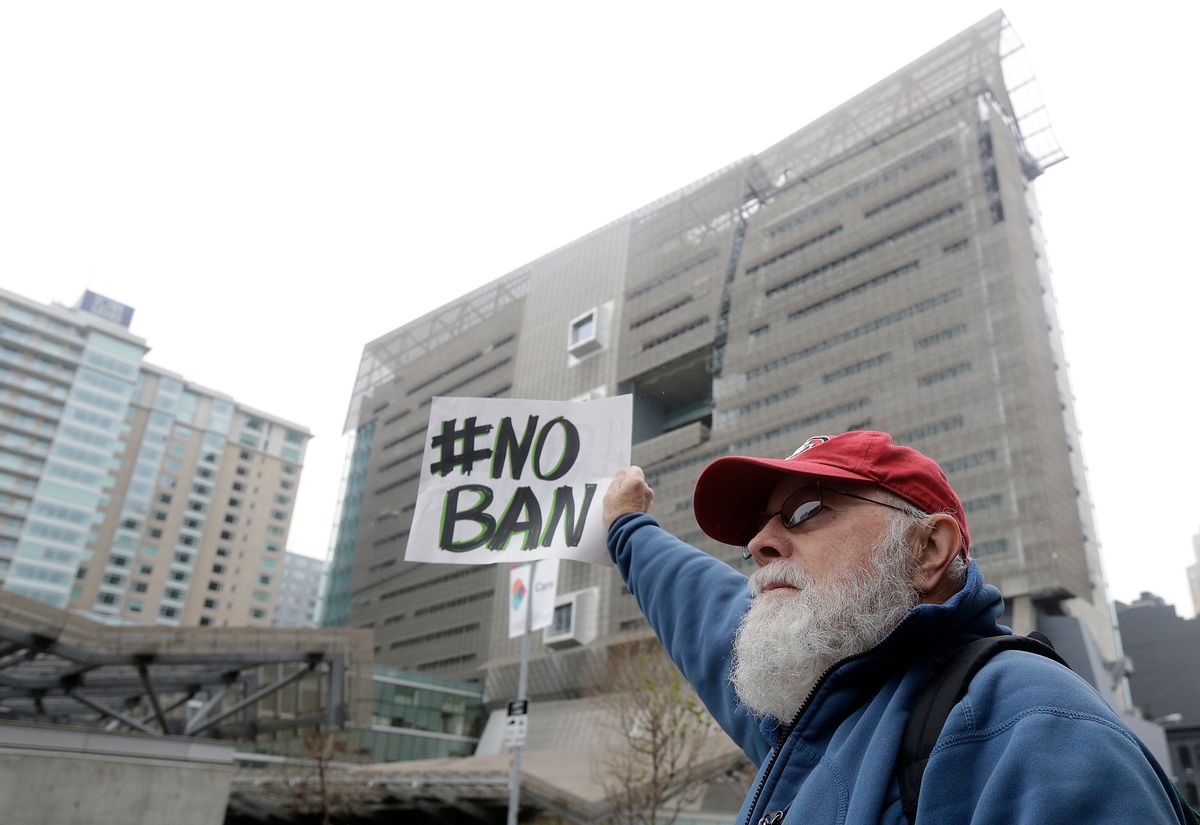Having been repeatedly rebuked by lower courts in his attempts to implement a travel ban targeting seven Muslim-majority nations, President Donald Trump is now taking his case to the highest legal authority in the land — the Supreme Court.
Although lower courts have found that Trump's proposed ban would discriminate against Muslims and thus be unconstitutional, Acting Solicitor General Jeffrey Wall argued in his Supreme Court filing (according to a report by CNN) that "the Constitution and Acts of Congress confer on the President broad authority to suspend or restrict the entry of aliens outside the United States when he deems it in the Nation's interest."
[salon_video id="14774665"]Justice Department spokesperson Sarah Isgur Flores reinforced this argument, stating that "the President is not required to admit people from countries that sponsor or shelter terrorism, until he determines that they can be properly vetted and do not pose a security risk to the United States."
As University of Texas Law School professor and CNN legal analyst Steve Vladeck told the site, one interesting twist of the Trump administration's argument is that they're insisting the travel ban should be implemented until the court has a chance to decide on its legality.



Shares